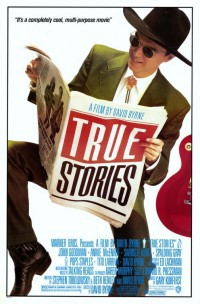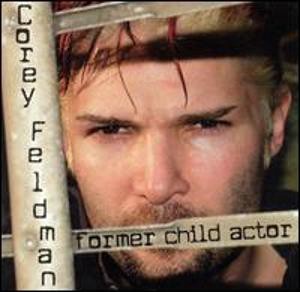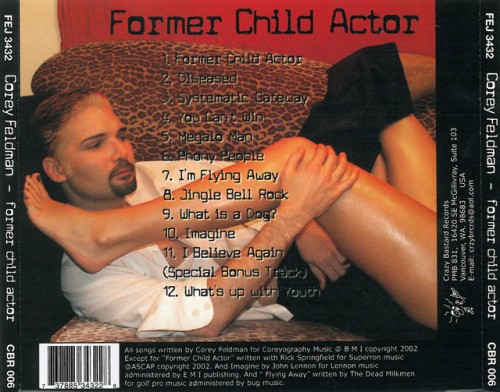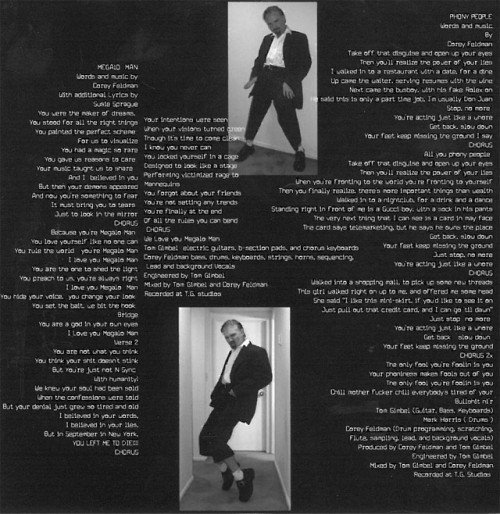Introducing... The Billfold

Do you like money? Do you wish you knew more about it? Have you spent the last few years nursing an inchoate desire for some sort of website that would help you learn more about money without being stuffy and dry? Yes you have! And here’s the good news: Such a site now exists! Please welcome The Billfold, the newest member of The Awl family. Brought to you by Awl pals Mike Dang and Logan Sachon, The Billfold “aims to do away with the misbelief that talking about difficult money issues is uncomfortable, and create a space to have an honest conversation about how we save, spend and repay our debts. We are going to break one of the last taboos in our culture — talking about what you earn, what you spend, what you owe.” Learn more here!
Florida Man's Butt Stands Its Ground

A man was taken to the hospital after getting shot in the buttocks at work in a South Florida pawn shop.
At about 6:30 p.m. Tuesday, an employee of David Bari’s Pawn shop on State Road 7 in Margate stepped out, leaving his semiautomatic Glock .40 caliber gun on top of a counter. Another employee saw the weapon and thinking it was a store item, picked it up to place it in the showcase.
The gun went off while the employee was handling it and a third employee happened to be in the line of fire.
Tired People Sad

“Snorting, gasping or stopping breathing while asleep was associated with nearly all depression symptoms, including feeling hopeless and feeling like a failure. We expected persons with sleep-disordered breathing to report trouble sleeping or sleeping too much, or feeling tired and having little energy, but not the other symptoms.”
— If you suffer from sleep apnea here is another reason why you suck.
Photo by DenisNata, via Shutterstock
The Idiot's Guide to Reading Korean

This is either helping me or really messing me up. (Koreans: weigh in angrily below!)
The True Life Story Of Bonnie (Or "Bonny") "Prince" Billy

“Bonny’s parents performed intercourse merely once, but it was deeply tantric, lasting so long they conceived and birthed 3 children during the single act. Bonny was born Siamese twins, conjoined at every part of the body — overlapped perfectly on top of one another so he looked like just one guy. During puberty, Bonny’s Other began to itch, so he underwent a procedure to be surgically separated from himself, cell by cell. When doctors attempted to reassemble the extracted Boniface, they wound up with just two frogs, a jaybird, and a monkey holding a banjo. It was at this point he began to noodle around with music.”
— I do not like the name under which Will Oldham and David Byrne have chosen to release the five songs they recorded as a duo for the upcoming Sean Penn movie, This Must Be the Place. (Though I am very interested in seeing the movie — which is named after an older song of Byrne’s — as Sean Penn is one of my very favorite actors, and his character, a mopey aging goth rocker, seems to be mostly based on the Cure’s Robert Smith, who is one of my favorite mopey aging goth rockers.) But I like very much the artist bio Oldham wrote for himself, under his alias Bonnie “Prince” Billy, for the new (patent pending!) direct-sale media distribution platform, Gyroskope.
Listening To The Corey Feldman Prog-Rock Record
by Mike Barthel

In 2002, Corey Feldman was the canary in the reality-show coal mine. Before starring on the first season of VH1’s “The Surreal Life,” a show that spawned something like 16 spinoffs, the fallen star of Goonies and The Lost Boys produced an album which could stand as the unofficial soundtrack for the 00s’ glut of celebrity reality shows. That Former Child Actor was going to be a wreck was evident before it even came out (maybe it was the promised cover of “Imagine” that tipped everyone off). But this series is dedicated to reassessing vanity projects past, no matter how unpromising, so let’s do now what we didn’t do then — and give Former Child Actor a listen.
THE SONGS: Aside from the cover of “Imagine” and covers of the Dead Milkmen’s “I’m Flying Away,” and “Jingle Bell Rock” (“[r]earranged and recomposed” by Feldman, to sound like a metalcore Christmas carol), all are originals written by the actor, with the exception of the title track, which was co-written with Rick Springfield. The general sound can be summed up as “all of the bands at Woodstock ’99 but with a much lower recording budget.”
THE PACKAGING: The cover goes with the theme of celebrity persecution; Feldman’s face appears in extreme close-up behind a lattice of bars (the cover of an A/C vent, looks like), as if captured through a telephoto lens by paparazzi stalkers. On the back cover he lies on a leopard-print couch, wearing a white shirt unbuttoned to the waist and with blonde-streaked hair shellacked in a sweaty sweep and a classic nu-metal bassist’s goatee. His right hand rests sadly on an oily pair of bare female legs. The graphic on the CD and tray is an overhead close-up of his thinning hair.
The booklet reprints the lyrics of all the songs, which are earnest and painful to read in the way that observing someone failing to deal with their own problems always is (“my message is strength and that should be a factor / but no one gives a crap ’cause I’m a former child actor / the war I will wage is like a nuclear reactor / but the headlines still reads he’s just a former child actor”). One age includes a photo of Feldman in an undershirt, smoking and flipping off the camera as he poses for a mock mugshot. In another picture, he appears in a barren carpeted hallway in a black suit, up on his toes and pulling his pant legs up to reveal white socks in the classic Michael Jackson pose. There are also pictures of him staring into a mirror and putting on lipstick, and of him kissing a plant. He is sweaty or greasy in every photo, and they all seem to have been taken inside a not-particularly-nice apartment or rented home.


The thank-yous start off with “each and every Corey fan” before moving on to Corey Haim, Ron Jeremy and Howard Stern. He also thanks his musical inspirations, among them Billy Joel, David Gilmore, “and of course Wacko Jacko.” He ends with “And to all of the non believers HA HA HA.” The domain of his music manager’s email address is aol.com.
DID IT SELL? Only the first 2,000 copies of the CD contained the cover of “Imagine.” My copy, purchased last week, contains the cover of “Imagine.”
WAS I ABLE TO FIND AN UNOPENED CD FOR SALE? Oh yes.
SKETCHINESS OF LABEL: Medium-high. It came out on a Portland label called Crazy Bastard Records, which has put out records by such seminal Portland punk bands as “Secludes” and “Monkey Fur.” But their main product appears to be tribute albums to beloved joke-punk bands like GG Allin, the Meatmen, and the Dead Milkmen. So not a vanity label, but flying pretty close.
MOST HILARIOUS QUOTE FROM AN AMAZON REVIEW OF THE ALBUM: They’re all joke reviews, so none of them are funny.
WHEN HE MADE IT: If the traditional narrative of former child actors is your basic “Behind the Music” arc of success -> hubris -> failure -> rock bottom -> redemption, Corey Feldman seems cursed to swing eternally between steps three and four, a celebrity Sisyphus pushing a giant stack of Star magazines through a never-ending news cycle.
After a steady stream of TV and commercial work as a younger child, he came to fame through the classic ’80s kiddie trilogy of Gremlins, The Goonies, and Stand By Me. In Goonies, a carefully constructed movie whose fourth wall is constantly threatened by the young actors’ clear excitement at being around one another, Feldman’s personality is the most vivid. His character, Mouth, is like a nerdy kid pretending to be Han Solo, the kind of tween who, as he gets older, can either refine his extroversion into a professional comedy act or just stick with that level of awkward humor and become David Brent. Feldman seems to have landed squarely on the latter, and for a regular person, that’d be fine. But his work in the 80s has stuck him with a fame that gives him regular, and profitable, opportunities to be humiliated in public. (Imagine if David Brent was given a prime-time comedy special for the express purpose of letting everyone make fun of his awful jokes and songs, and you have the last fifteen years of Corey Feldman’s career.)
Feldman came to be defined through his strange, tragic relationships with two people: Michael Jackson and Corey Haim. One of the many showbiz kids Jackson brought into his orbit, Feldman formed a strong bond with the singer, and seemed resentful that Jackson didn’t feel as strongly toward him. One of the songs on Former Child Actor, the furious “Megalo Man,” is about Jackson, but when MJ died, Feldman dedicated a concert to him, with some apparent fondness. (The concert was powered entirely by alternative energy, because Feldman is an “eco-activist” now.)
As for Haim, he and Feldman found fame as a pair of Tiger Beat hearththrobs who shared a ridiculous name, but became mutual doppelgangers, encouraging the worst in one another. After co-starring in The Lost Boys, the Two Coreys made a series of films together that defined the phrase “diminishing returns”: sequels, self-written indies-because-they-couldn’t-get-funding comedies, direct-to-video sequels, etc. Then there’s “The Two Coreys,” the “semi-scripted” reality show they did one-and-a-half seasons of from 2007 to 2008 before getting canceled. The show was enjoyable, but symptomatic of Feldman’s post-’80s problems: a decent idea executed with pure amateurism. If it hadn’t been scripted, it would’ve been fantastic. By trying to control it, the fun was ruined. Haim, a longtime addict to just about every kind of drug he could get his hands on, died in 2010 (offical website is still going and is heartbreaking); Feldman was not invited to his funeral, though he framed this as staying away “to minimize the media attention.”
Former Child Actor, released in 2002, came out in the period between Feldman’s real fame and his final descent into abject pandering. Feldman was an early adopter of the “celebrities as real people” trend that emerged around the turn of the millennium (you’ll remember that “The Osbournes,” the first big celebrity reality show in America, also premiered in 2002), becoming a regular on Howard Stern’s show apparently for the sole purpose of being made fun of; the “Baba Booey!” tone of the Amazon reviews suggests Stern’s fans took to this in earnest. In 2003, he appeared on the first season of “The Surreal Life,” VH1’s ur-reality show, alongside Vince Neil and Emmanuel Lewis. Many of Feldman’s moments involved his budding romance with Susie Sprague, who he met in a club in 2002 when she was celebrating her 19th birthday. (Those are probably her legs on the back cover.) In the series finale (above), they marry in a ceremony co-officiated by MC Hammer and a rabbi. Hugh Hefner also attends. There is a scene in which everyone stands around and gives Feldman marriage advice, and it is just too much.
Sprague is a strong presence throughout this period, co-starring with Haim on “The Two Coreys,” and receiving a few credits on Former Child Actor. She and Feldman, who have a son together, have since divorced. Feldman continues to live his life as a mega-beta, showing up to make fun of himself in successful movies and videos while producing unsuccessful but sincere movies of his own. He’s either a permanent submissive or trolling all of us really, really effectively.
WHO MADE IT: Though he certainly had help, Feldman is generally responsible for the album. He’s been making music for a long time. As a solo act, he released a very Michael Jackson-y single called “Something in Your Eyes” in 1990, and, in 1994, came out with a New Jack Swing album called Love Left (a single from which is above); he has also apparently done seven movie soundtracks. Two years ago, his band Truth Movement put out a concept album about technology, aliens, and the environment, the central question of which is, as Feldman has said, “what came first, the apple or the robot?”
THE MUSIC: In trying to avoid the clichés of vanity albums, Corey just ends up embodying the clichés of awful local bands. One song is titled “Phony People”; another is called “What’s Up With Youth.” While he doesn’t put on sunglasses and front a blues combo or murmur over a pre-built track, he has made an album full of adolescent resentment, pretense, undesirably cheap sounds, and wicky-wacky guitars. It might as well be called “Unaware of its Limitations.” Arguments are made that men who beat dogs are more like animals than men, and what’s up with that??? The most interesting track is the aforementioned “Megalo Man,” which, the credit notes, has “additional lyrics by Susie Sprague.” At the song’s climax, Feldman j’accuses: “I believed in your words / I believed in your lies / But in September in New York / YOU LEFT ME TO DIE!!!!” (Remember: 2002.) It is, in short, awful, the sound of a man who thinks he’s chopping down a tree actually hacking away at his own arm, grinning at you with fawning desperation. “How do you like your brown-eyed Corey now, Mr. Jackson?” he would yell, if he had the cultural awareness, and the fact that he doesn’t just makes it seem like a tantrum. The ultimate tragedy of Corey Feldman is that you can’t feel sorry for him: he’s got problems, but so do the rest of us, and he’s the one that keeps going back to the celebrity well rather than get another job. This January, he joined the cast of the UK’s “Dancing on Ice.” He was eliminated in the fourth week.
Previously: Ian McShane’s From Both Sides Now
Mike Barthel has a Tumblr.
Jew Angsty
“If there were such a thing as a perfect Jewish joke — and who is to say that the Dayenu is not it? — it would never finish. Ours is a religion of suspense. We wait and wait, for a God who cannot show Himself and a Messiah we would rather never came. We await an end, as we await a punch line, to a narrative that has no end. And just when we thought it was all over, it begins again. What are the last words of the Dayenu? ‘It would have sufficed us …’ But by now our ear demands another clause, another gift, another setback for God to overcome. There is no final thank-you because there is no final sufficiency.”
